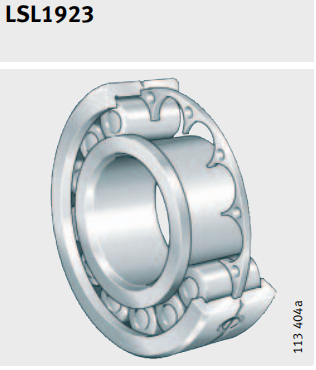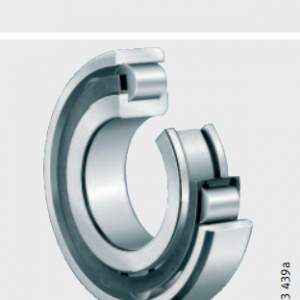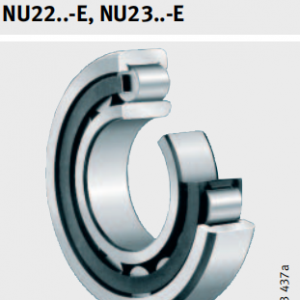Description
INA LSL192334 Cylindrical roller bearing With disc cageSemi-locating bearing |
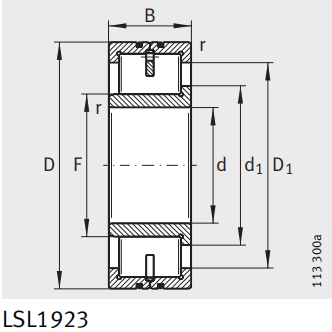 |
| Designation | Mass | Dimensions | Mounting dimensions | ||||||
| m | d | D | B | r | S1) | F | d1 | D1 | |
| ≈kg | mm | mm | mm | min. | ≈ | ≈ | |||
| LSL192334 | 57.5 | 170 | 360 | 120 | 4 | 7 | 230.55 | 226.6 | 295.4 |
INA LSL192334 Axial displacement‘S’ |
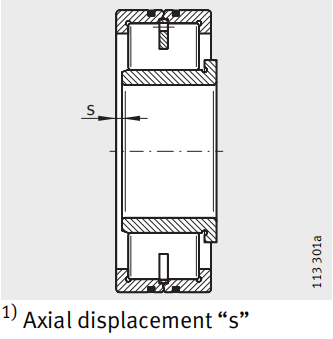 |
| Basic load ratings | Fatigue limit load | Limiting speed | Reference speed | |
|---|---|---|---|---|
| dyn | stat | Cur | nG | nB |
| Cr N | C0r N | N | min -1 | min-1 |
| 1 750 000 | 2 230 000 | 241 000 | 3 750 | 1 720 |
Features
Low friction cylindrical roller bearings LSL and ZSL are of a single row, self-retaining design and correspond to dimension series 23. The bearings have solid outer rings with two ribs, the inner rings are designed with one rib. The inner ring is removable and thus allows easier mounting of the bearings. The disc cages or spacers prevent the cylindrical rollers from coming into contact with each other during rolling.Cylindrical roller bearings NJ23..-E and spherical roller bearings 223..-E1 have the same design envelope as LSL1923 and ZSL1923.
Semi-locating bearings
Cylindrical roller bearings LSL1923 and ZSL1923 are semi-locating bearings and can support not only high radial forces but also large axial forces in one direction. They act as non-locating bearings in the opposite direction.
Since they have a larger number of rolling elements and larger rolling elements, LSL and ZSL bearings have higher radial and axial load carrying capacity than all comparable cylindrical roller bearing designs with a solid cage. They can withstand high shock loads and vibrations, support large centrifugal forces and allow accelerations
up to 500 m/s2.
Due to the low frictional torque across the entire speed range and the low heat generation, the bearings have the highest limiting speeds of all cylindrical roller bearings. In addition, the optimum heat dissipation ensures thermally stable conditions in the bearing.
Operating temperature
Cylindrical roller bearings with disc cage or spacers are suitable for operating temperatures from –30 °C to +120 °C.

